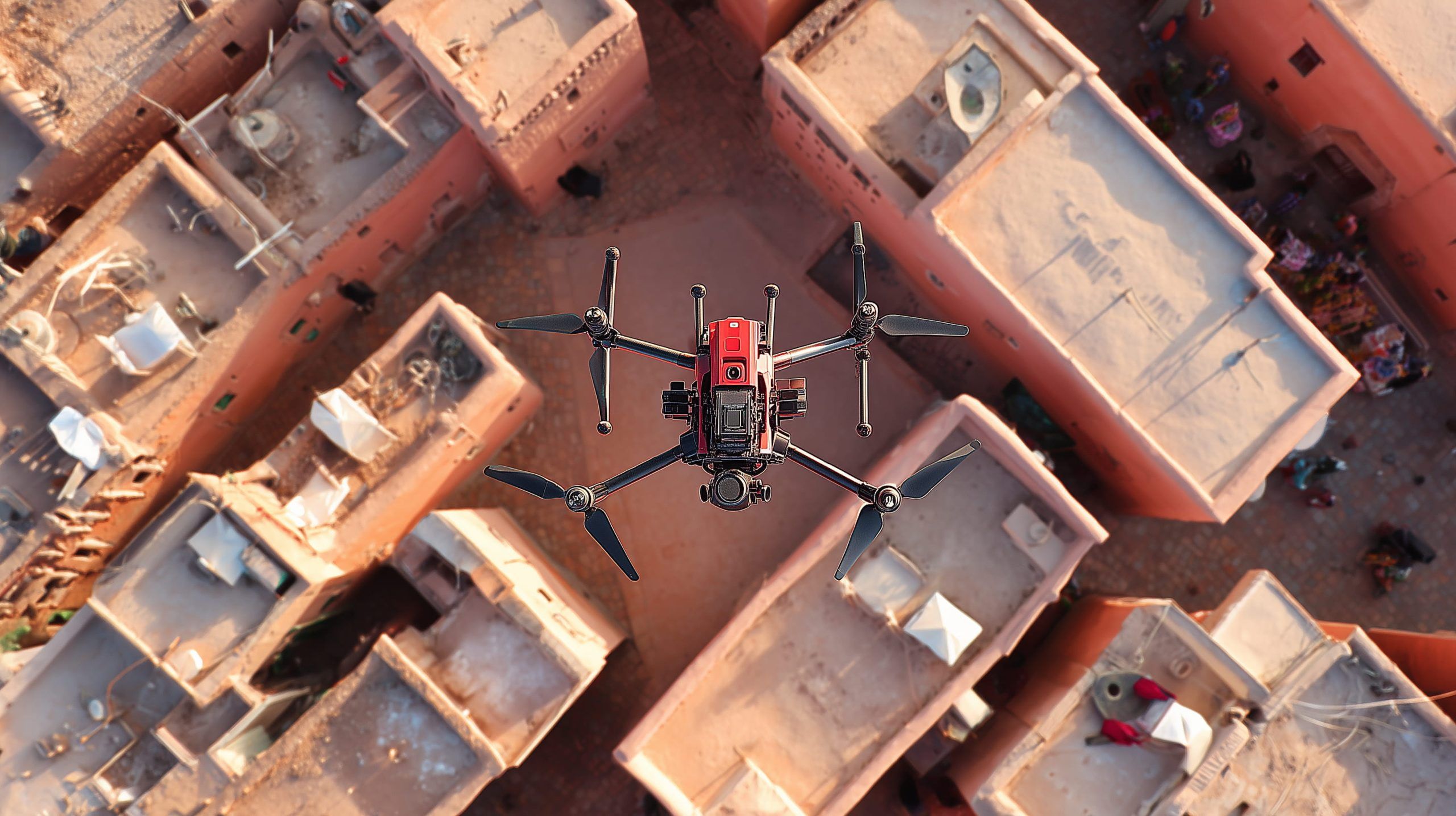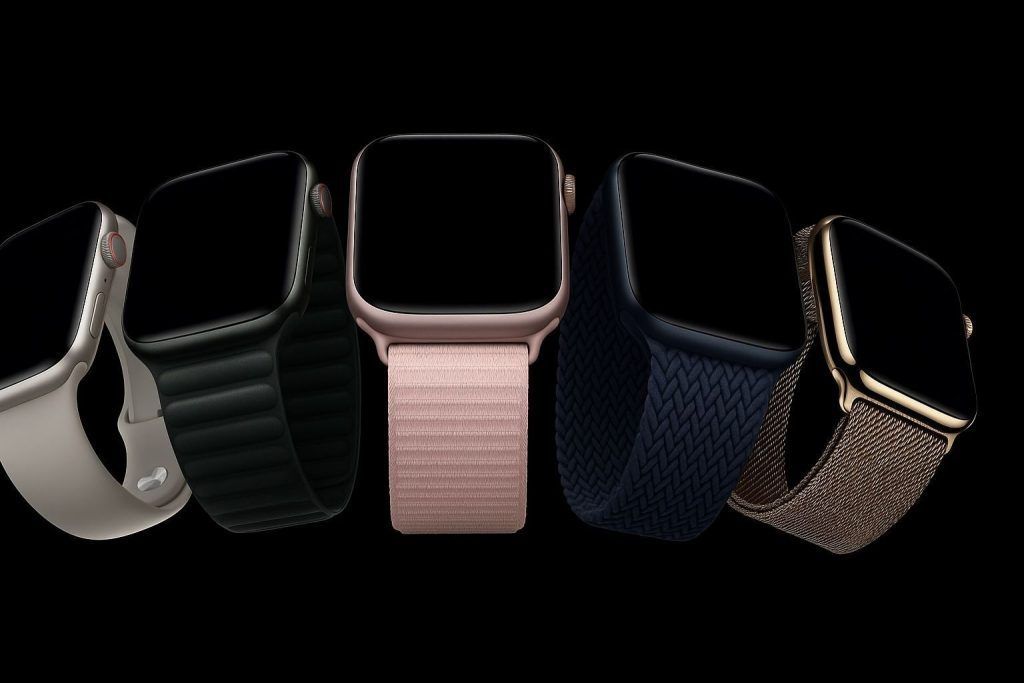Key Facts
- General Ban: Morocco has enforced a strict ban on recreational drone use since 2015, including in Marrakesh. Any drone brought in without prior permission will be confiscated by customs and not returned uavsystemsinternational.com.
- Permit Required:Commercial or professional drone operations are only allowed with special authorization. An import license and flight permits must be obtained through a lengthy approval process involving multiple government agencies 0gravitydroneservices.fr medias24.com.
- No-Fly Zones: Drones cannot be flown over sensitive areas like military sites, royal palaces, airports, or crowds. Morocco’s rules (formal and informal) prohibit flights that risk security, privacy, or safety, especially in high-profile cities such as Marrakesh 0gravitydroneservices.fr morocco-phototours.com.
- Legal Penalties: Violating Morocco’s drone laws can lead to severe penalties. Unauthorized drones are seized on sight, and offenders may face fines or other legal sanctions under Moroccan law medias24.com. Even drones purchased legally before 2015 require local authorities’ permission to use medias24.com.
- Tourists & Residents:Tourists are generally not allowed to fly drones in Morocco. Visitors who attempt to bring drones into Marrakesh will have them held at the airport until departure (if declared) or permanently seized (if undeclared) uavsystemsinternational.com. Local hobbyists also cannot legally fly drones without going through the same rigorous permit process as businesses.
- Recent Developments: As of 2025, the 2015 ban remains in effect, but Morocco has established a framework (e.g. a 2017 transport ministry decree) for case-by-case drone permits 0gravitydroneservices.fr. Moroccan authorities themselves have expanded drone use for public safety (e.g. surveillance during the COVID-19 pandemic), even as civilian use stays tightly controlled morocco-phototours.com morocco-phototours.com.
Introduction: Drone Regulations in Marrakesh, Morocco
Marrakesh – known for its bustling souks and stunning landscapes – might seem like a drone photographer’s dream, but Morocco’s drone laws are among the strictest in the world. Since March 2015, Morocco has effectively banned civilian drone operations due to national security and privacy concerns apnews.com medias24.com. This nationwide ban applies in Marrakesh just as in the rest of the country. In practice, no drone (even a small recreational quadcopter) can be flown legally in Marrakesh without explicit government authorization. The rules make no distinction between drones and other remotely controlled flying models, treating them all as potential security risks medias24.com. Below, we break down what this means for recreational users, businesses, and government agencies, and how one might legally navigate the permit system if you have a compelling reason to fly a drone in Marrakesh.
Why Are Drones Banned? (Background and Rationale)
Morocco’s hardline stance on drones stems from national security, privacy, and safety considerations. The ban was first introduced by a joint government directive in 2015 after officials cited the threat of unauthorized surveillance and espionage (especially given regional tensions) and the risk of drone misuse morocco-phototours.com morocco-phototours.com. A communiqué from the Interior Ministry and other departments explicitly warned of “security risks and invasion of privacy” from unregulated drones apnews.com medias24.com. By prohibiting hobbyist drones, authorities aim to prevent incidents like drones spying on sensitive installations or causing airport disruptions. Additionally, Morocco lacks the extensive radar and enforcement infrastructure that would be needed to track countless private drones in the sky morocco-phototours.com. Instead, the government chose a blanket ban to eliminate potential threats at the source. The privacy of citizens is another concern – unregulated drones could easily violate personal privacy by filming people without consent, a matter the government takes seriously morocco-phototours.com. Finally, public safety in crowded areas is a factor; a drone malfunction over a packed Marrakesh market or tourist site could cause injuries or panic. All these concerns have led Morocco to prioritize security over recreational drone freedom, resulting in laws that make flying even a small drone in Marrakesh exceptionally difficult.
Recreational Drone Use in Marrakesh
For casual drone enthusiasts and tourists, the bottom line is simple: recreational drone flying is not allowed in Marrakesh or anywhere in Morocco without prior approval. In fact, Morocco’s Directorate of Civil Aeronautics (DCA) has confirmed that drones are banned outright for the general public uavcoach.com. If you attempt to bring a drone through Marrakesh Menara Airport, customs officers will confiscate it – there are even signs at airports warning travelers of this rule uavsystemsinternational.com.
- Bringing Drones into Morocco: According to multiple sources and travel reports, if you fail to declare a drone at customs, it will be seized and you will not get it back uavsystemsinternational.com. If you do declare it, officials will hold the drone at the airport and return it when you leave the country uavsystemsinternational.com. Either way, you won’t be permitted to actually use the drone during your stay. This applies to drones of any size or weight – even toy drones or small camera drones fall under the ban.
- Flying Without Permission: A local resident in Marrakesh likewise cannot just take a drone out to the desert or the mountains and fly it for fun. No hobbyist flight can occur legally unless a special permit is obtained (which, as we’ll see, is typically reserved for professional purposes). There are no public drone clubs or approved recreational flying zones in Morocco as of 2025, because the law does not provide a framework for regular citizens to fly. Any unapproved flight – whether in a remote area or within the city – can lead to intervention by police or military and result in the drone being confiscated on the spot medias24.com.
- Examples in Marrakesh: Marrakesh’s attractions like Jemaa el-Fnaa square, Koutoubia Mosque, or the historic Medina might be tempting backdrops for drone footage, but flying over these areas is strictly forbidden. Crowded public spaces are off-limits for drones, and Marrakesh has many sensitive sites (including a royal palace and military facilities in the vicinity) where a drone would raise immediate red flags. In short, for tourists and locals without explicit authorization, Marrakesh is effectively a no-drone zone.
Commercial Drone Use and Permit Process
Unlike recreational users, commercial operators have a pathway (albeit a challenging one) to fly drones in Morocco. If you’re a business, film crew, or other professional entity, you may be able to obtain permission to use a drone in Marrakesh under very strict conditions. Morocco has set up a multi-step approval process to control who can import and operate drones for work purposes:
- Import License (Permit to Bring in a Drone): Before any drone can even enter Moroccan airspace legally, the operator must secure an import license from the government. This requirement was established by Ministerial Decree No. 386-15 of 6 February 2015 0gravitydroneservices.fr. According to this decree (published in Morocco’s official bulletin medias24.com), all pilotless flying devices require prior importation approval. In practice, only registered Moroccan companies can apply for this import license via the online PORTNET system 0gravitydroneservices.fr. A foreign company planning a drone shoot in Marrakesh would typically need to work with or establish a local entity to handle this. The process is not quick – it can take several weeks or even months for the application to be reviewed by the relevant ministries (Interior, Foreign Trade, etc.) 0gravitydroneservices.fr. The application must detail why the drone is needed and assure authorities that it will be used responsibly and securely.
- Operational Authorization (Flight Permit): Obtaining the import license is just step one. Each drone flight or project requires a separate flight authorization from local authorities medias24.com. For example, if a film production company wants to film aerial shots in Marrakesh, they must coordinate with the provincial governor’s office (Wilaya/Prefecture) where the flight will occur 0gravitydroneservices.fr. A formal request must be submitted providing detailed information: the drone’s specifications, the pilot’s identity and qualifications, exact GPS coordinates of the flight area, the flight dates and times, and the purpose of the flight morocco-phototours.com. This allows security services to evaluate the request. Generally, authorities ask for at least 10 business days to review a flight permit application, and sometimes longer 0gravitydroneservices.fr morocco-phototours.com. In certain regions or sensitive locations, the request may be escalated to the Royal Armed Forces for approval, which can extend the waiting period beyond two weeks 0gravitydroneservices.fr. Each approved flight comes with strict conditions (for instance, limiting altitude, time of day, and areas of operation as specified in the permit).
- Cinematographic and Other Permissions: If the drone use involves filming (movie, documentary, commercial, etc.), the operator must also secure a filming permit from the Moroccan Cinematographic Center (CCM) before flying 0gravitydroneservices.fr morocco-phototours.com. The CCM’s general film permit is a prerequisite, ensuring the project itself is authorized by cultural authorities. Only after obtaining the film permit will the government consider the drone flight request. This two-step requirement often causes additional delays morocco-phototours.com. Furthermore, depending on the nature of the work, other permits might be needed – for example, if using certain radio frequencies or if flying in a protected natural area, you might need clearance from the National Telecommunications Regulatory Agency or environmental authorities 0gravitydroneservices.fr 0gravitydroneservices.fr. Morocco’s bureaucracy expects drone operators to “dot every i” and coordinate with all relevant agencies.
- Operational Guidelines for Permitted Flights: Once a company finally has all the necessary permits, it must adhere to stringent operational rules. The drone may only be flown exactly in the approved area and time window. Standard safety rules always apply: no flying over gatherings of people, respect for privacy, daylight operations only, and avoiding restricted zones like airports or government buildings uavsystemsinternational.com. Moroccan authorities often require that police or military personnel be present to monitor approved drone flights in sensitive areas morocco-phototours.com, especially in cities like Marrakesh where security is tight. In effect, even when you have permission, you fly under watchful eyes and with clear boundaries.
- Local Partnerships: For foreign companies, one recommended approach is to partner with a local Moroccan drone services provider. Local providers (registered with the civil aviation authority and Interior Ministry) know the ins and outs of the process and can act as the official applicant on your behalf 0gravitydroneservices.fr. In fact, foreign operators are required to have a local “sponsor” or licensed entity vouch for the drone use morocco-phototours.com. Each request by a foreigner is assessed individually, and authorities will consider the pilot’s experience and certifications as part of the decision morocco-phototours.com. This means if you’re a filmmaker flying in from abroad, you’ll likely need to hire a Moroccan drone pilot or fixer who holds the necessary credentials to include in the permit application.
In summary, commercial drone use in Marrakesh is possible but heavily regulated. Companies must be prepared for a lot of paperwork and waiting. Spontaneous drone shoots are impossible – everything must be planned well in advance. Many professionals start the permit process months before their project. Those who navigate the system successfully (for example, to film a Hollywood movie scene or conduct an aerial survey) do so by working closely with Moroccan authorities and respecting all conditions. The payoff is that you can capture Morocco’s beauty from above, but only under government supervision and with full compliance.
Government and Law Enforcement Drone Use
The rules that restrict the public do not mean Morocco is “anti-drone” across the board. On the contrary, Moroccan government agencies and authorized companies have been using drones for years, but under strict oversight. In Marrakesh and other regions, law enforcement, military, and certain government-approved projects employ drones for specific purposes:
- Police and Security: Moroccan police and security forces have begun using drones for surveillance and crowd monitoring, especially in urban areas. Notably, during the COVID-19 pandemic lockdowns, authorities in cities like Rabat and Temara deployed drones to broadcast public safety messages, detect gatherings on rooftops, and enhance surveillance where patrols couldn’t easily reach morocco-phototours.com morocco-phototours.com. This proactive use of drones helped enforce curfews and health measures. While Marrakesh’s specific examples aren’t widely publicized, it’s likely that similar tactics were considered or used in Marrakesh’s public spaces to ensure compliance with restrictions. These drones are typically operated by trained officers and often developed in partnership with local tech firms, indicating a controlled but growing governmental use of UAV technology morocco-phototours.com morocco-phototours.com.
- Military and Border Security: Given Morocco’s security concerns (e.g. sensitive borders and counter-terrorism efforts), the military is presumed to use drones for reconnaissance and defense. Such operations are classified and not detailed in public regulations, but as the 2015 ban announcement noted, government institutions can obtain permission to import and use drones for official needs apnews.com medias24.com. The Royal Armed Forces likely have their own internal approvals to deploy drones for monitoring conflict regions or strategic sites. These uses are outside the civilian regulatory framework and handled within defense channels.
- Public Agencies and Research: Certain public agencies and state-owned companies in Morocco have also leveraged drones. For example, drones have been used in agricultural monitoring, infrastructure inspection, and environmental research on a limited basis under government authorization morocco-phototours.com. Morocco’s regulators have allowed specific pilot programs – such as mapping solar panel installations or surveying agricultural land – carried out by universities or tech startups in coordination with ministries morocco-phototours.com morocco-phototours.com. Marrakesh, being a major city, isn’t an agricultural hub, but nearby regions in Morocco have seen such drone projects. Any government-sanctioned drone operation, whether for spraying disinfectant or studying wildlife, is tightly controlled and requires that the drone be registered and approved through the proper channels drone-laws.com.
- Regulatory Oversight: All government or official drone operations still fall under oversight of the Directorate General of Civil Aviation (DGAC) and the Interior Ministry. In fact, government drones are typically registered with the authorities even though the operators (police, military) obviously don’t need to get “permits” in the way civilians do drone-laws.com. Instead, there are inter-ministerial protocols that allow these uses. The existence of Ministerial Decree 1560-17 (Ministry of Transport), referenced in local drone industry guidelines, suggests that by 2017 Morocco issued specific technical rules for approved drone operations 0gravitydroneservices.fr. These likely define requirements for training, drone equipment standards, and coordination with air traffic control when official drones are flown – especially if operating in controlled airspace near airports or above certain altitudes.
In short, Morocco’s public sector has embraced drones on its own terms. They are used as a tool for governance and security, even as private use is banned. This duality – “drones for me (the state), but not for thee (the public)” – underscores that the law’s strictness is about control. If a drone is in the sky over Marrakesh, odds are it’s there because a state agency or an authorized company is doing a sanctioned job, not because a hobbyist is having fun.
Permit and Registration Requirements
To legally operate a drone in Marrakesh (or anywhere in Morocco) outside of government use, you must navigate a two-tier permit system, as touched on earlier. Here we detail the requirements for permits and registration:
- Importation License: The first requirement is obtaining an Import License for the drone itself. Morocco treats drones as sensitive imports; hence, a special import license is mandatory under the 2015 trade law update medias24.com medias24.com. This is not a simple customs declaration – it’s a license that must be approved before the drone enters Morocco. It involves paperwork submitted to the Ministry in Charge of Foreign Trade, including details about the drone model and intended use. Crucially, the Interior Ministry must sign off on the import as well, due to security vetting medias24.com. Only after all approvals can the drone clear customs legally. Without this, customs will seize the drone at the border as contraband. Companies apply via the PORTNET electronic platform, but the application’s approval can take a long time as it circulates through multiple agencies 0gravitydroneservices.fr.
- Drone Registration: For those few drones that are allowed in, Morocco likely maintains a record of them. While Morocco doesn’t have a public “register your drone” system for hobbyists (since hobby use is banned), any drone imported with permission would effectively be registered by virtue of the import license. Additionally, government-operated drones are registered internally with the DGAC or relevant authority drone-laws.com. If, for example, the Marrakesh police have drones, those units are catalogued by the authorities to ensure they’re accounted for. There is no blanket registration process for private individuals because private ownership is virtually nil under the ban.
- Pilot Qualifications: Interestingly, Morocco does not issue a local drone pilot license to civilians – there’s no equivalent of an FAA Part 107 or EASA certificate in-country for hobbyists or independent operators. However, when applying for a flight permit, authorities will scrutinize the qualifications of the pilot named in the application morocco-phototours.com. They “highly recommend” pilots hold an internationally recognized certification (such as an FAA license from the USA or an EASA certificate from Europe) to prove competence morocco-phototours.com. Practically, if you’re a foreign drone operator coming to shoot a film in Marrakesh, having a licensed, professional drone pilot (or being one yourself) strengthens your case. Moroccan companies that offer drone services often tout that their pilots are certified abroad and registered with the Moroccan DGAC. While not a legal requirement on paper, pilot experience is a de facto requirement to get authorization.
- Insurance: All drone operators seeking permits in Morocco must carry appropriate insurance coverage for the drone morocco-phototours.com. This is explicitly required during the permit process – you may need to show proof of liability insurance that covers any damage or injury that could result from the drone’s operation. The insurance must specifically cover the model of drone being used morocco-phototours.com. This makes sense: Moroccan authorities want to ensure that if something does go wrong during an authorized flight, the operator has the financial means to cover damages. For example, if a drone approved for a film shoot in Marrakesh accidentally crashes into a building or injures someone, insurance would handle the claims. Without insurance, it’s unlikely a permit would be granted at all.
- Compliance with Technical Standards: The 2017 Ministry of Transport decree (No. 1560-17) likely outlines technical requirements for drones that operate in Morocco 0gravitydroneservices.fr. While the details of this decree aren’t provided in public summaries, operators should expect to comply with standard aviation safety practices: for instance, drones must be in good working order, possibly equipped with failsafe features, and operated within visual line of sight. The DGAC may require documentation on the drone’s specifications. If radio frequencies are used for control that are not standard, the operator might need clearance from the telecommunications agency (ANRT) to ensure no interference with other systems 0gravitydroneservices.fr. Essentially, every technical aspect – from equipment to pilot skill – is vetted as part of the permit process.
Obtaining all these approvals is complex. Many filmmakers and businesses hire specialized “fixers” or local consultants in Morocco to handle the red tape – from securing import licenses to coordinating with the CCM and local authorities 0gravitydroneservices.fr. This adds to the cost and lead time for any drone project. If you’re wondering why there aren’t more travel vlogs with drone footage of Marrakesh’s skyline, the answer lies here: the barrier to entry is high.
No-Fly Zones and Airspace Restrictions
Even when a drone operation is permitted, Morocco enforces strict no-fly zones and airspace restrictions, particularly relevant in and around Marrakesh. These rules are designed to protect sensitive locations and maintain safety:
- Airports and Flight Paths: All airports are absolute no-fly zones for drones. Marrakesh Menara Airport, for instance, has a busy airspace with commercial flights. Drones must stay well clear – typically at least 8 km (5 miles) away from airports as a general guideline drone-laws.com. Flying a drone anywhere near the approach or departure paths of an airport is not only illegal but extremely dangerous. For any authorized drone flight in Marrakesh, coordinates would be checked against proximity to Menara Airport. If too close, the permit would be denied or require special coordination. Airspace around airports is controlled (Class C/D airspace), and unauthorized UAVs intruding there would be treated as a serious security breach.
- Military and Security Sites: Marrakesh, like other Moroccan cities, has various military installations and police facilities (e.g., barracks, intelligence service buildings). These are strictly off-limits. The government explicitly forbids drone flights over or near military bases or security-sensitive infrastructure 0gravitydroneservices.fr morocco-phototours.com. Royal palaces are included in this category – and Marrakesh hosts a royal palace often frequented by the King. Such sites often aren’t even visible on consumer maps, but authorities know their locations and will not approve any flight plan that encroaches on their vicinity. If a drone were to stray over a palace or military compound, one could expect an immediate intervention (perhaps even the drone being jammed or shot down, given the security priority).
- Government Buildings and Embassies: Similarly, central government buildings, embassies, or critical infrastructure (power plants, communication towers) in the Marrakesh area are no-fly zones. Drone permit applications must list GPS coordinates, which are cross-checked against a map of restricted areas morocco-phototours.com. If the proposed flight area overlaps any sensitive location, expect the answer to be no. Morocco doesn’t publish a public map of these zones, so it’s on the applicant to research and work with local authorities to ensure a flight plan is safe. In practice, the safest bet is to assume all important government or diplomatic sites have a protective bubble of restricted airspace around them.
- Crowded Public Areas: Even outside secure facilities, flying over people is prohibited for safety and privacy reasons uavsystemsinternational.com. In a city like Marrakesh, that means drones shouldn’t fly over busy markets, tourist sites, or residential neighborhoods without special arrangements. For example, Jamaa el-Fnaa square – always teeming with crowds – would never be approved for overflight during operating hours. If a film needed a drone shot of the square, authorities might require it to be done at dawn before the crowds arrive (and with police supervision on site). Morocco’s approach is aligned with common drone safety practices: maintain at least 50 meters distance from people and buildings not involved in the operation drone-laws.com. However, because Moroccan law doesn’t formally allow casual flights at all, these distances are enforced through the permit’s conditions rather than a civilian regulation.
- Altitude Limits: While Morocco hasn’t published a detailed drone altitude regulation for public use, any authorized flight will come with an altitude restriction. A common international guideline is to stay below 150 meters (about 490 feet) above ground drone-laws.com. This keeps drones away from manned aircraft traffic for the most part. It’s safe to assume Morocco would impose a similar or even lower altitude ceiling in permits. In urban Marrakesh, flying even 100 meters up could intrude on helicopter or low-flying aircraft space. Also, higher altitudes increase the chance of a drone being seen (and causing alarm) or losing control. Therefore, permit holders must follow the specific altitude limit given – and if none is explicitly stated, staying well under 150m is wise. There is no free-flying in higher airspace; anything above that would squarely violate civil aviation rules and risk interception by authorities.
- Night and Weather:Drones may only be flown in daylight and good weather conditions uavsystemsinternational.com – this is a typical stipulation and Morocco is no exception. If you somehow have permission to fly in Marrakesh, you won’t be allowed to do so at night unless extraordinary permission is granted (which is rare and would require demonstrating the drone has proper lighting and the operation is safe). Likewise, strong winds or storms would ground operations for safety. Moroccan permits likely become void in adverse weather; operators would have to wait for clear conditions.
- Protected Areas: Morocco has national parks and nature reserves (some near the Marrakesh region, like the High Atlas mountains). Drones could disturb wildlife, so these areas are often sensitive. The ban on drones already covers them, but even a permitted commercial operator would need additional clearance if flying in a protected reserve. For instance, to film wildlife or landscapes in Toubkal National Park (south of Marrakesh), one would need environmental authority approval on top of the standard permits. The permit process encourages consulting all relevant authorities for exactly this reason 0gravitydroneservices.fr – to catch any special restrictions based on location.
In essence, the airspace in Marrakesh has many red zones for drones. The default assumption by authorities is that any area could be sensitive until proven otherwise. This cautious approach means that even after going through the hoops to get a drone in legally, operators must plan their flight path meticulously to avoid prohibited zones, or their permit will be denied. It’s a very controlled dance in the skies, with no room for freelancing.
Legal Consequences and Penalties
Morocco’s enforcement of drone laws is strict, and the penalties for violations reflect the government’s uncompromising stance. If you break drone regulations in Marrakesh (or anywhere in the country), you risk confiscation, fines, and possibly prosecution:
- Immediate Confiscation: The most immediate consequence of illegal drone possession or use is confiscation of the drone. Customs officials will seize undeclared or unauthorized drones at entry points uavsystemsinternational.com, and there is no guarantee of getting them back. The official policy since 2015 has been that any drone entering without prior permission is contraband. As the government’s joint statement put it, “Toute importation sans autorisation… donnera lieu à la saisie” – any import without authorization will result in seizure medias24.com. If you somehow sneaked a drone in and are caught flying it, local police will likewise confiscate the equipment on the spot. Confiscated drones are typically held indefinitely or destroyed; at best, a traveler might retrieve it upon leaving if it was voluntarily declared and held in bond.
- Fines and Legal Sanctions: Operating a drone without authorization can trigger legal penalties under multiple Moroccan laws. There isn’t a specific “drone law” criminal code article published for public view, but violators can be charged under laws related to aviation, customs, or public security. For example, importing a drone without a license violates customs regulations and can result in fines, as well as the loss of the device medias24.com. Using a drone in a way that threatens security or privacy could fall under Morocco’s broad security laws. While exact fine amounts aren’t stated in the public documents, Moroccan law allows for steep fines and even imprisonment for activities deemed dangerous to state security or for smuggling restricted goods. In one high-profile incident (hypothetical example), if a drone were flown near a sensitive site, the operator could be detained and investigated by security forces, not just given a small fine.
- Prosecution for Serious Offenses: If authorities believe a drone was used for spying, trespassing, or endangering aircraft, the incident could escalate to a criminal case. Morocco has anti-terrorism and espionage laws that, in the worst-case scenario, could be applied to an errant drone user (though this would be extreme for a tourist taking photos, it’s within the realm of possibility if someone flew over a palace or military base). More commonly, however, prosecution might involve charges of operating an unlicensed aircraft or violating airspace regulations. Because the 2015 directive mentioned privacy explicitly, someone who filmed people with a drone without consent could potentially face lawsuits or charges for invasion of privacy as well apnews.com.
- Local Authority Actions: The Moroccan approach also empowers local authorities (governors, police chiefs) to handle drone infractions. The directive said that even drones already in Morocco (from before the ban) must get local authority permission to be used medias24.com. This implies that if an individual flew a pre-2015 drone without checking in, local officials could confiscate it and sanction the person. In Marrakesh, the Wali (governor) or local police may issue administrative penalties or refer the matter to court. They take unauthorized drone flights seriously, so you should expect no leniency if caught.
- Case-by-Case Outcomes: For tourists, anecdotal evidence suggests that many who have been caught with drones simply lose the drone and are perhaps warned, but not jailed. The authorities often realize a traveler might be ignorant of the law, so the consequence is usually the permanent loss of the equipment and possibly a fine. However, for anyone appearing to deliberately flout the rules or locals who ought to know better, the response can be harsher. Businesses operating without permits can be shut down and fined heavily. And if any damage is caused (say a drone crash causes injury), the operator would be liable for civil damages on top of any regulatory punishment.
Overall, the cost of violating drone laws in Morocco far outweighs any potential benefit. Not only is your drone almost certainly forfeited, but you could also face legal troubles that ruin your trip or project. Moroccan officials have made it clear that they will “proceed to the systematic seizure, across the entire national territory, of any device whose importation was not authorized” medias24.com, underlining their zero-tolerance approach. For your own sake, it’s best to comply fully or refrain from flying at all.
Rules for Tourists, Residents, and Businesses
Morocco’s drone regulations affect everyone, but there are some differences in how the rules apply to various groups. Here’s what tourists, local residents, and businesses need to know specifically in the context of Marrakesh:
- Tourists: If you’re a traveler thinking of bringing a drone to capture your Marrakesh vacation from the air, think again. Tourists are the most likely to be caught off guard by Morocco’s ban. No special exceptions are made for tourists – the rules are as strict (if not stricter) for foreign visitors. Upon arrival, declare your drone to customs; they will confiscate and hold it safely until you leave uavsystemsinternational.com. Do not attempt to hide it in your luggage – customs agents are well aware of drones and x-ray scanners will likely spot them. If found undeclared, it’s confiscated with no paperwork, and you’ll have no recourse to reclaim it uavsystemsinternational.com. You also risk being questioned by authorities for trying to circumvent the law. During your stay, you won’t be allowed to use the drone at all. Essentially, for a tourist, a drone is a useless item in Morocco – you can’t fly it, and you might not even get to keep it. The best advice is to leave your drone at home when visiting Marrakesh. If you absolutely need aerial footage, consider hiring a local licensed drone operator (there are a few in Morocco) who can handle the permits and do the flying legally.
- Moroccan Residents (Hobbyists): For locals in Marrakesh who are drone enthusiasts, the situation is similarly restrictive. Since the ban specifically targeted individuals (“ce ban s’applique exclusivement aux particuliers” i.e. private persons 0gravitydroneservices.fr), a Moroccan resident cannot fly a drone recreationally. In theory, a Moroccan citizen could try to go through the permit process, but because permits are generally tied to professional use, it’s not feasible just for a hobby. Practically, if a Marrakshi wants to get into drones, they might join or start a company that has a valid reason (like aerial photography services) and then apply as a business. Some residents have done this, essentially formalizing their hobby into a licensed business. But flying around the neighborhood for fun is illegal. There are reports of model aircraft clubs or university programs that use drones – these would all require special authorization. So for an average resident, owning a DJI Phantom or similar and flying it on weekends is not an option under the current law. Even possession of a drone could be problematic unless it’s disassembled or you have proof of permission.
- Businesses and Professionals: Moroccan businesses, including those in Marrakesh, can use drones only by following the official authorization route. This includes Moroccan film production companies, surveying firms, real estate marketers, etc. Many such companies have sought and obtained the necessary import licenses and maintain good relationships with authorities to get flight permissions as needed. One notable point: foreign businesses cannot directly operate drones in Morocco; they need a local partner or must go through a local entity morocco-phototours.com. For example, if a European real estate company wants to film a property near Marrakesh by drone, they should hire a Moroccan drone operator who has the equipment and permits. Businesses also should be mindful of the limited scope of “approved” drone uses – typically only things like filmmaking, mapping, agriculture, inspections, and other professional activities have been greenlit by authorities morocco-phototours.com. Using a drone to, say, deliver goods in Marrakesh or for entertainment purposes (like drone light shows) would likely not be approved under current rules, as those use-cases weren’t part of the initial professional exemptions (which were focused on film and industrial uses medias24.com). Each new application of drones would probably need explicit government blessing.
- Journalists and Media: It’s worth noting for media professionals (either foreign correspondents or local journalists) that journalistic use of drones is treated like any other commercial use – it requires permits. There’s no special pass for press. In fact, given Morocco’s sensitivity to security, news media flying drones without permission could face serious legal issues. There have been instances globally where journalists using drones were accused of unauthorized surveillance; in Morocco, that risk is high if done without clearance.
- Academic and Research Users: Universities or researchers in Morocco who wish to use drones (for archaeological surveys, environmental research, etc.) also must obtain permissions. However, being often linked with government or having official sponsorship can ease the process. For example, a research project at a Moroccan university might get a drone permit if it’s endorsed by a government ministry. Marrakesh has universities and research institutes that might want to use drones; they would coordinate with authorities just like businesses do.
In all cases, the theme is consistent: the law does not differentiate much by who you are, but rather by what process you follow. Tourists and casual users have virtually no legal avenue. Residents can gain access only by fitting into the “professional” category. Businesses and organizations that follow the law can utilize drones, but must remain within the confines of their granted permissions. Everyone is subject to the overarching ban first, and then to the narrow exemptions second.
Recent Changes and Updates to Drone Legislation
Morocco’s drone laws have remained relatively constant in their strictness since the 2015 ban, but there have been some developments and clarifications in recent years worth noting:
- 2015 Ban and Subsequent Clarifications: The initial ban via the importation decree in 2015 set the tone, but enforcement has been continuously reinforced. In the immediate years after, Moroccan media and officials repeatedly reminded the public that drones are illegal without permission. By 2017, the Ministry of Transport issued Decree 1560-17 (referenced in industry discussions) to outline technical and operational rules for those few authorized drone uses 0gravitydroneservices.fr. This suggests that while the blanket ban stayed, the government was working on a framework to safely manage the limited drone operations it allows (for example, possibly integrating them into air traffic control procedures, setting training standards, etc.). This decree is not widely circulated to the public, but professionals in Morocco refer to it for guidance. Essentially, it formalized how approved drones should operate, signaling a move from an absolute ban to a tightly regulated allowance for certain activities.
- Growing Local Drone Industry (Under Restrictions): Interestingly, even with strict laws, Morocco has seen growth in a controlled drone industry. Several Moroccan companies have emerged specializing in drone services (filming, surveying, etc.), all working under the permit regime. Industry experts note that Morocco is considered one of Africa’s leading countries in unmanned flight technology – it has skilled pilots, researchers, and even manufacturing of specialized drones morocco-phototours.com morocco-phototours.com. The catch is that all this growth is happening under government watch. For instance, during the COVID-19 pandemic, local startups like Farasha and Droneway Maroc expanded operations to supply drones for public safety uses morocco-phototours.com morocco-phototours.com. The pandemic arguably acted as a catalyst for authorities to see the utility of drones. As drones proved helpful for surveillance and sanitation tasks in 2020, the public perception in Morocco became more positive about drones when used by authorities morocco-phototours.com morocco-phototours.com. However, this did not immediately translate into loosening the rules for civilians – it was more about the state leveraging the technology.
- Enforcement in 2023-2025: Reports from travelers and forums up to 2024 show that enforcement at airports remains very vigilant. Customs at Marrakesh and other airports are still routinely confiscating drones from unaware tourists uavcoach.com reddit.com. In fact, some travel advisories explicitly warn visitors about the drone ban. If anything, Morocco doubled down on notifying the public – signage in airports and announcements make it clear. There haven’t been any indications that Morocco will lift or ease the ban for hobbyists in 2025. The security rationale (especially with ongoing regional issues and Morocco’s focus on anti-terrorism) is still forefront.
- International Comparison and Pressure: Morocco is somewhat unique in its outright ban approach, but it’s not alone (a few other countries also heavily restrict drones). There’s occasional speculation in the drone community about whether Morocco might move towards a permit system for hobbyists (similar to how some countries require registration and exams for personal use). As of the latest information, no such changes have been implemented. Morocco likely observes the global trends – e.g., how neighbors or European countries manage drones – but will craft its policy based on its security needs. Any future change would probably involve a licensing system for individuals, but there’s no concrete news of that yet.
- Notable Incidents and Adjustments: One thing that can drive legal updates is incidents. To date, Morocco has thankfully not suffered any major drone-related incident publicly (no drone crashes into planes, etc., partly due to the ban). Minor incidents like tourists caught with drones have been handled quietly. If, hypothetically, an incident occurred (like an unauthorized drone over a sensitive event), it could prompt even stricter measures or conversely a call to have clearer regulations. But in absence of incidents, the status quo has held steady.
In conclusion, the recent updates are more about fine-tuning the strict regime rather than loosening it. The government has streamlined the permit process slightly (with online systems and defined steps) and has embraced drones for its own use, showing that it recognizes the technology’s value. However, for the average person or visitor in Marrakesh, 2025’s laws are just as prohibitive as they were in 2015 – if not more so, given the increased awareness and enforcement. Always check the latest notices from Moroccan authorities (the Directorate of Civil Aviation or Ministry of Interior) if you have any doubt, but do not expect a dramatic policy reversal in the near term.
Conclusion
Flying a drone in Marrakesh, Morocco is a highly regulated activity that most people will not be able to pursue legally. Morocco’s drone laws can be summarized in one phrase: “No permission, no flight.” The kingdom’s firm stance since 2015 means that spontaneous recreational flying is essentially impossible, and only vetted professionals with compelling needs can get through the hoops to fly a drone in Moroccan skies.
For travelers, the advice is unequivocal – leave your drone at home when visiting Marrakesh, or risk losing it at the airport. For local enthusiasts, channeling your passion into an official business or project is the only viable path, and even then, the journey involves navigating a complex bureaucracy. Businesses that manage to comply with all requirements can capture Morocco’s beautiful landscapes from above, but they do so under strict supervision and with a stack of permits in hand.
Ultimately, Morocco’s approach reflects its priorities: protecting security, privacy, and safety takes precedence over the convenience of flying gadgets. By understanding and respecting these laws, you’ll not only stay out of trouble but also appreciate the rationale behind them. And if you absolutely need that perfect aerial shot of Marrakesh’s red rooftops and palm groves, plan far ahead, work with the authorities – or consider hiring one of the licensed Moroccan drone professionals who operate within the bounds of the law. In Morocco, the sky belongs to those with clearance – and knowing the rules is the first step before you even think about taking off.
Sources:
- Morocco joint ministry statement on drone import ban (2015) – Médias24 medias24.com medias24.com
- UAV Systems International – Morocco Drone Laws summary uavsystemsinternational.com uavsystemsinternational.com
- 0Gravity Drone Services (Y. El Bakkali) – Drone regulations in Morocco for professionals 0gravitydroneservices.fr 0gravitydroneservices.fr
- Morocco Photo Tours – Guide to obtaining drone permits in Morocco (2025) morocco-phototours.com morocco-phototours.com
- UAV Coach – Drone travel notice for Morocco’s ban uavcoach.com
- Associated Press News – “Morocco bans import of drones citing security concerns” apnews.com apnews.com









